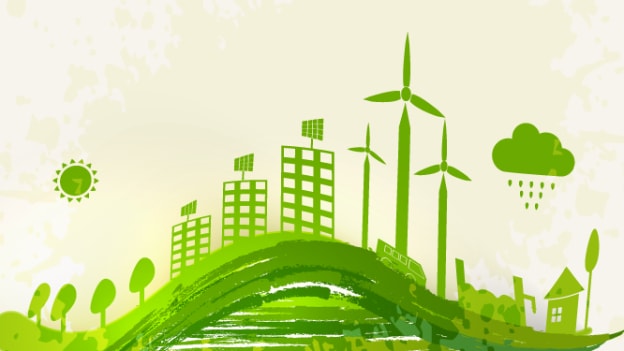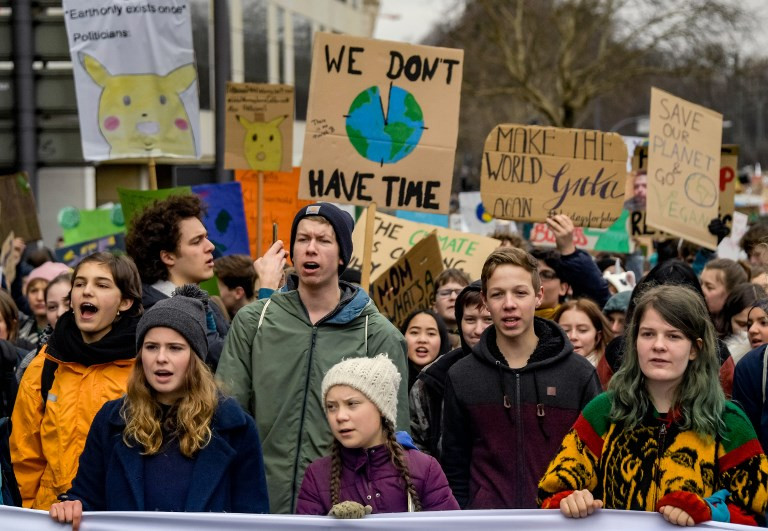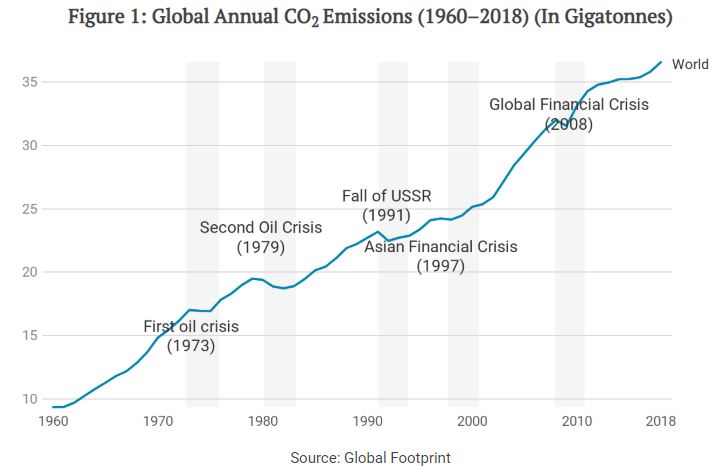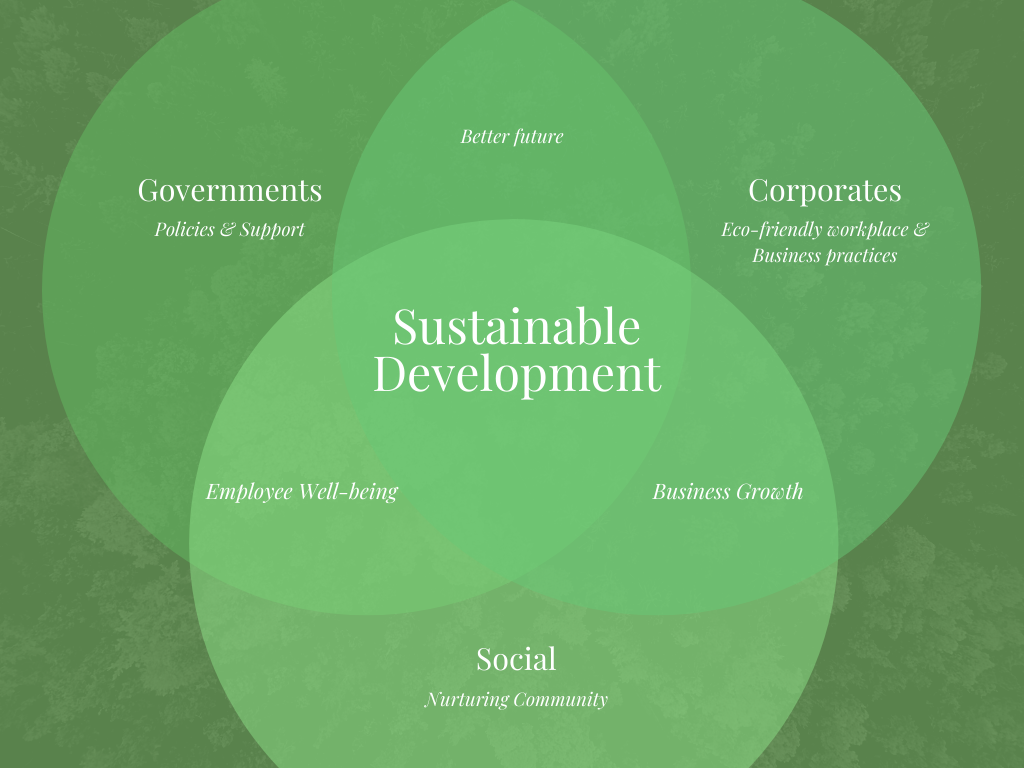Is creating sustainable workplaces still a priority for business leaders?

"The eyes of future generations are upon you and if you choose to fail us, I say: We will never forgive you." - Greta Thunberg
Year 2019 saw a huge revolution coming from the workforce across the globe. On 20th September, many from trade unions to a thousand workers at the Amazon headquarters, all walked out of their factories and offices to raise climate awareness. Many signed petitions against their respective employers to turn to more sustainable practices. Companies like Microsoft and Amazon even made several changes in the way they do business.
 The Jakarta Post
The Jakarta Post
Starting 2020, a new challenge, COVID-19 pandemic hit the world and shifted the priorities for businesses across sectors. Employee well-being and ensuring business continuity has become top priorities for organizations. Does that mean the goal to create purpose-driven and sustainable workplaces now takes a backseat? Or Instead, will the pandemic encourage the business leaders to focus more on sustainability than they did ever before?
Parag Kulkarni, Managing Director, A.O. Smith India said, “The current crisis has given us a unique opportunity to pause, reflect and rethink how to do a balancing act with nature to ensure a harmonious relationship. Hence, on the occasion of this year’s World Environment Day on June 05 which is themed as “Celebrate Biodiversity,” all the stakeholders must come together to save and protect our environment from different environmental challenges, the world is facing today.”
‘Sustainability’: Too critical to be forgotten
Largely driven by the climate change protests led by a Swedish environmental activist Greta Thunberg, last year, many companies issued their own sustainable development goals for the future. Multinationals like Microsoft and Amazon changed the way they work and do business. Many firms even redesigned their workspaces to make them more environment friendly. Amazon adopted “frustration-free” packaging and announced “Shipment Zero” project. While shipment Zero aims to produce net zero carbon emissions by 2030 for half of its shipments, the company also maintains that ecommerce and cloud computing inherently emit less carbon than personal shopping trips and on-premises data centers.
Recently, in March, Mozilla also launched a dedicated Environmental Sustainability Program. To embark on this journey towards environmental sustainability, they set three strategic goals: ‘Reduce and mitigate Mozilla’s operational impact; Train and develop Mozilla staff to build with sustainability in mind; and Raise awareness for sustainability, internally and externally.
Danish pump manufacturer Grundfos also continues its work towards doing sustainable business amid the crisis. Not sidelining the commitments made by it in 2019, the company is looking to save 50 Bn m3 of water and help over 300 million people across the globe access clean drinking water by 2030. Saravanan Panneer Selvam General Manager, Grundfos India, said, “ It is also our aspiration to be climate positive by the end of this new decade.”
By introducing these initiatives amid the COVID-19 crisis, these organizations have shown that sustainability as a business priority has not been forgotten.
In fact, the pandemic has been a stark reminder of how important it is to respect and protect the natural world.
“Creating sustainable businesses models can never take a backseat; it also needs to go hand in hand with employee well-being and business growth,” said Shilpa Sinha Harsh, SVP – Global Corporate Communications, CSR and D&I, HGS.
Rajesh Sahay, Senior VP - HR, Wipro Consumer Care & Lighting shared the same sentiment and said, "While the focus has shifted to safety and health of employees due to the pandemic, we have not defocused on sustainability initiatives." While companies focus on redesigning workplaces as per the new guidelines to maintain social distancing and ensure employee safety, they keep their sustainable practices like no plastic bottle in office – PVC free factory initiatives, managing e-waste, planting of trees on behalf of employees/ guest, and maintenance of indoor air quality, intact.
Focusing on sustainability becomes more important than ever
If we are to believe the data from the past, then when the economy rebounds and recovers from a crisis, the level of emissions soars at a rate faster than the previous levels. This had been the case after the oil crises of 1973 and 1979, the fall of the United Soviet Socialist Republics (USSR) in 1991, the Asian financial crisis of 1997, and the global financial crisis of 2008. 
Cathleen Berger, Mozilla Sustainability Steward wrote in her blog, “Through this pandemic, we’re reminded how fundamental the internet is to our social connections and that it is the baseline for many of the businesses that keep our economies from collapsing entirely. The internet has a significant carbon footprint of its own — data centers, offices, hardware and more require vast amounts of energy.”
If there is anything this crisis has taught us is that employers and the workforce have to change the way they do business and redefine the way they work.
So as businesses resume work slowly in phases, they must be mindful of climate change as well. And once the vaccine of COVID-19 is developed and the world of work has the opportunity to bounce back, governments, business leaders and the workforce must remember that we are not returning to the normal but entering a new era, a new phase. And in this phase, in this new era, business needs to be done keeping all the stakeholders in mind, including the environment.
“Individuals and corporations can make small changes in daily habits without dramatically affecting lifestyles. The scale of what your company can achieve by going green can never be underestimated. Build knowledge about how your company can make a difference on issues that are impacting the planet,” said Kulkarni. For instance, Wipro is fastidious about reusable & washable masks and is promoting the use of same in their workplace. The initiative may seem small, but the impact it can create is immense.
To lead the change all the key stakeholders have to work together and collaborate for building a better and more sustainable future.

Ravichandran Purushothaman, President Danfoss Industries Pvt Ltd (India Region) echoed a similar thought and said, “It is no longer rational to unlink economic growth from environmental sustainability and caring for the nature, which presses the need for the government and the industry to collaborate on a low-carbon high-growth recovery plan. In the coming months, public-private partnerships (PPPs) should play an effective role in setting and achieving targets that re-look at the efficiency of food, infrastructure and industry ecosystems.”
Collaboration is a great instrument in crafting and executing green visions that would provide the human race an exalted and exhilarating planet to live on. The safe and healthy future that we are all striving for is NOW. Not in the past, not in the future.
"We have to invest in a new economy to come out of this crisis in a better shape compared to how we went into it; ready for the future, sustainable, inclusive, competitive and well prepared […] because it is more profitable to protect the environment than to destroy it. This could just be our best chance to do this.” - Frans Timmermans, EVP, European Commission.















